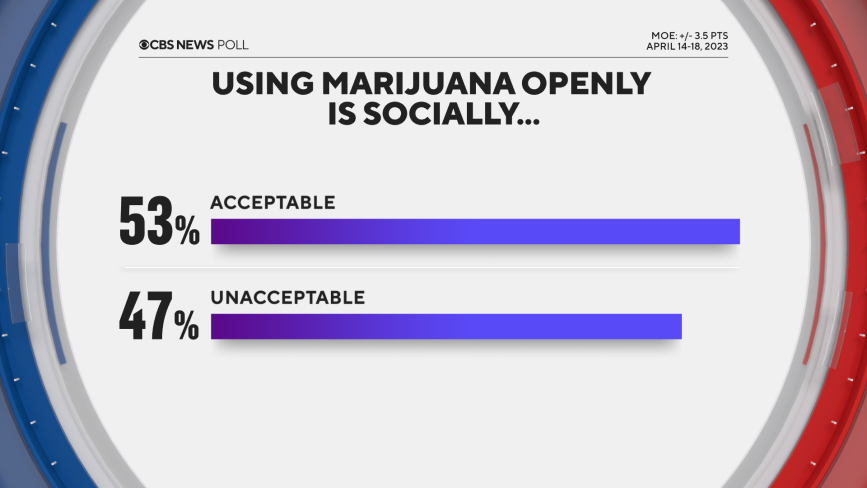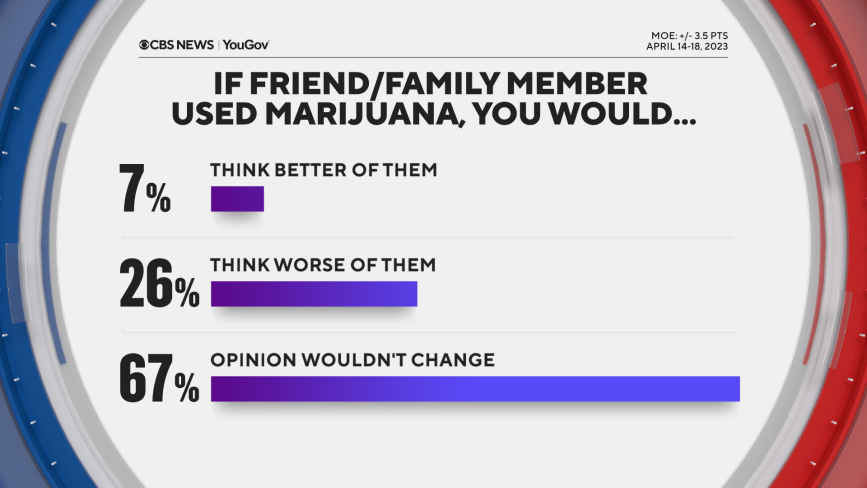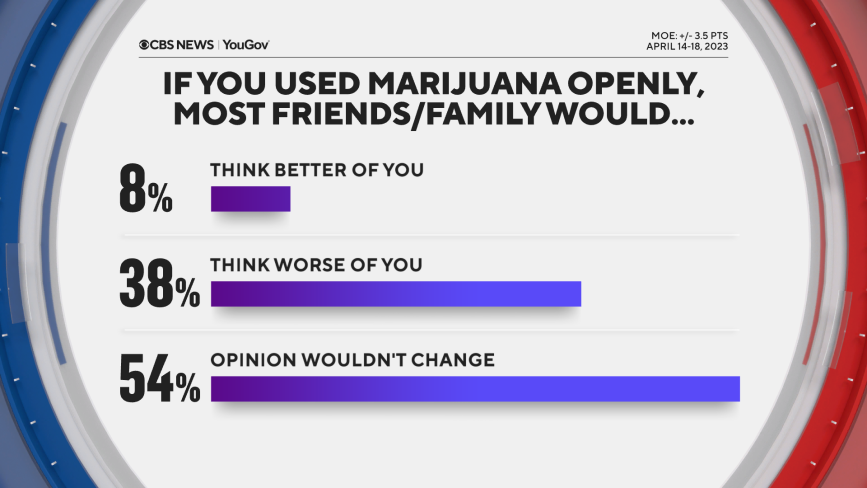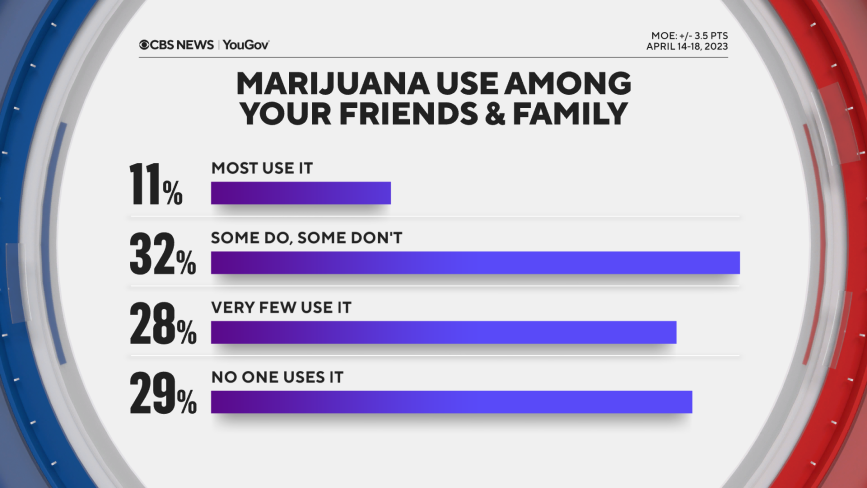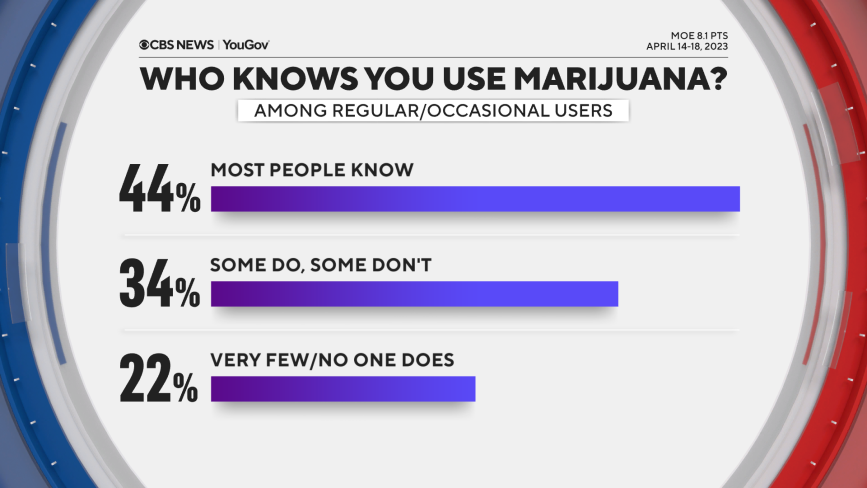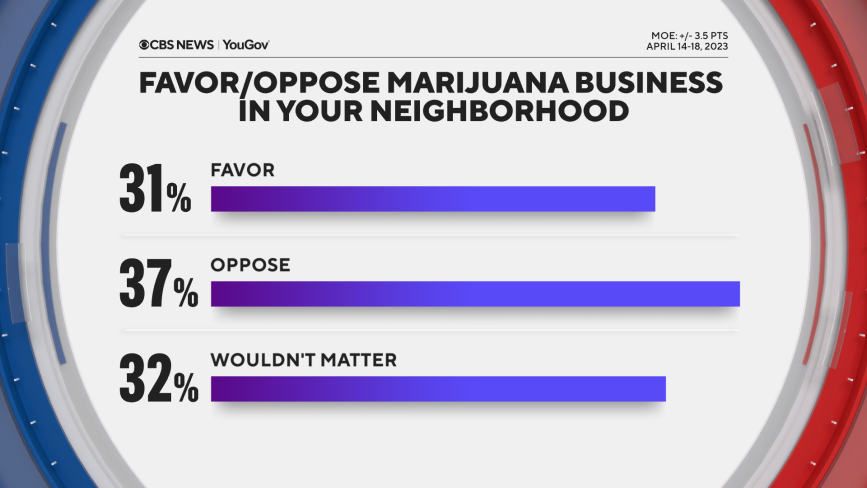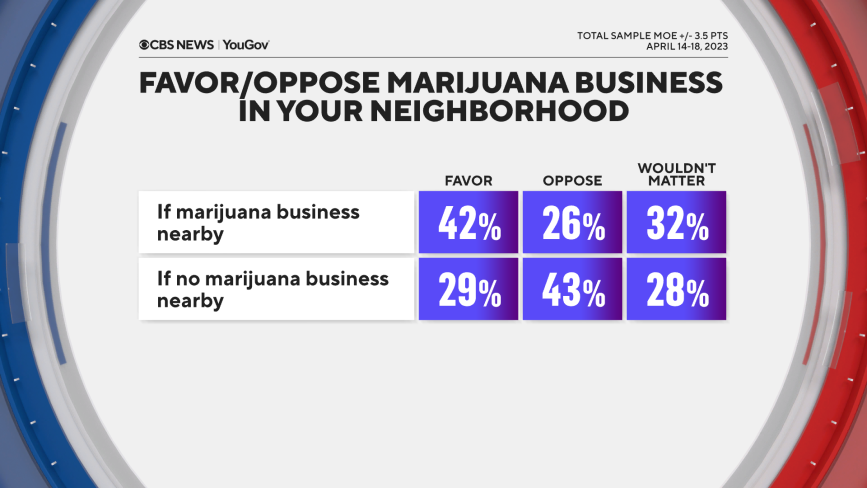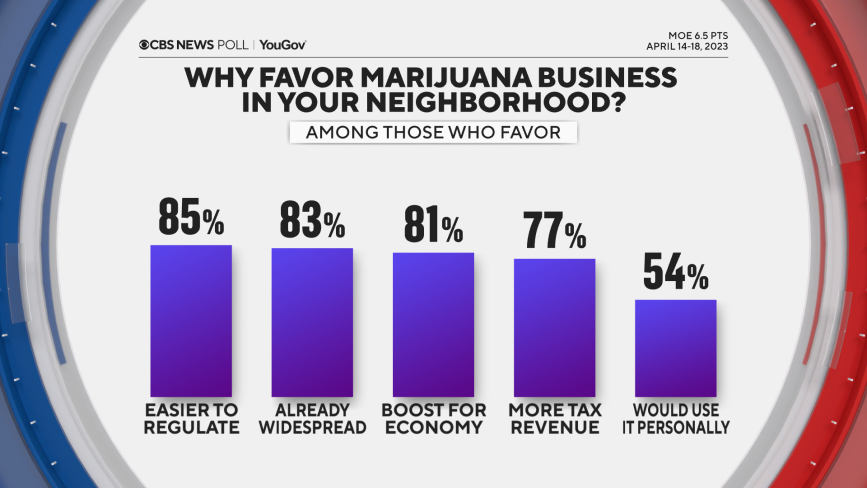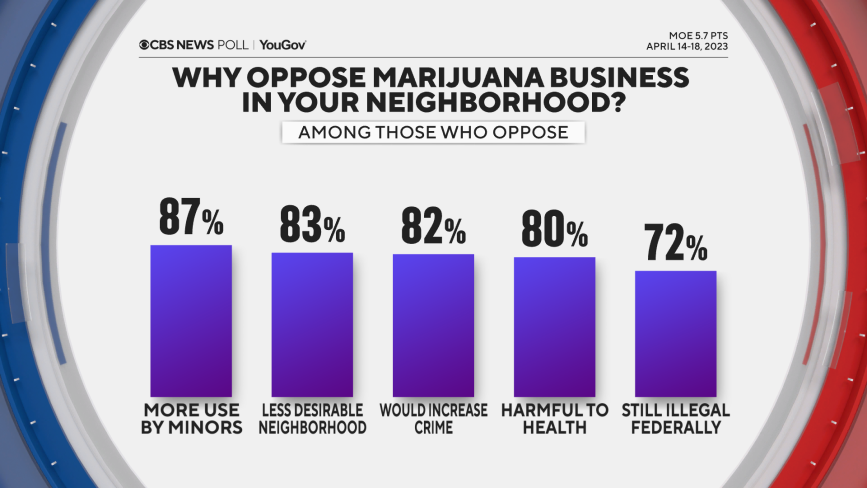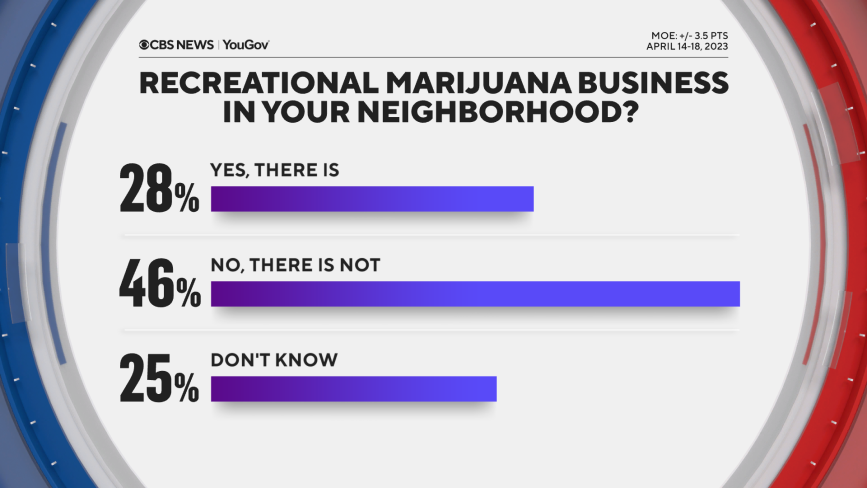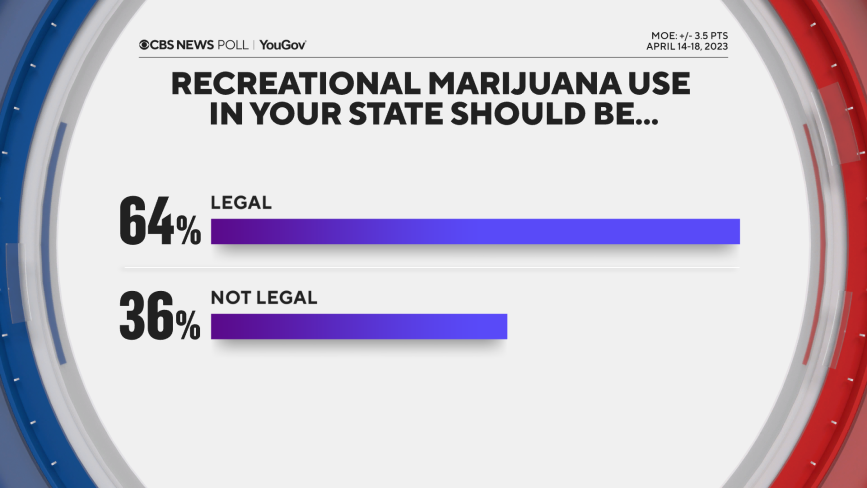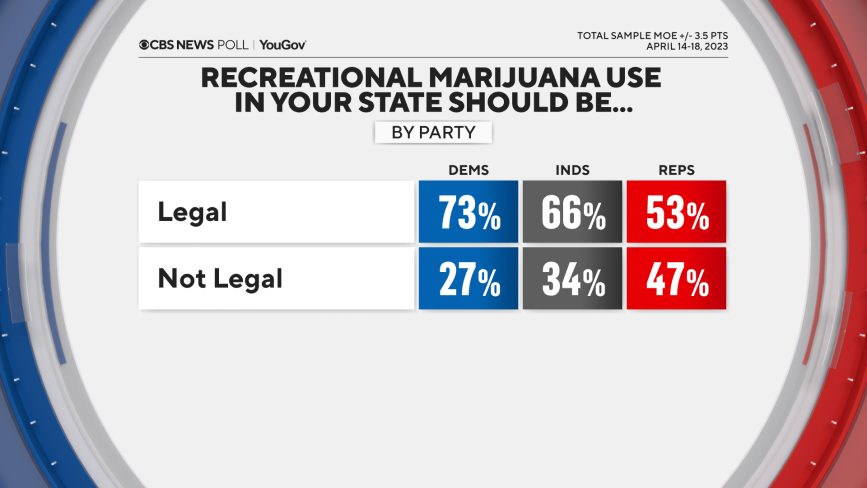Open marijuana use is socially acceptable, most say
Americans don't just think marijuana use should be legal — they also now think using it out in the open is socially acceptable, and most won't judge others for doing so or feel that they'd be judged themselves.
Today a slight majority of Americans consider using marijuana openly to be socially acceptable — a shift from when CBS News asked this question two years ago. Though this view is shared by a majority of Americans, most Republicans, conservatives, seniors over 65, and most Americans who regularly attend religious services disagree.
Most Americans also say they wouldn't think any less of a person for using marijuana — including most who hardly ever or never use marijuana themselves. Similarly, a majority of Americans say that if they themselves were to use marijuana recreationally, they feel most of their friends and family members would not change their opinion of them.
Social acceptability here is tied more to how openly many people in one's social circle use marijuana rather than one's personal experience with it. Americans who believe none of their friends or family members use marijuana are by far the most likely to judge other people for using it — and to feel that they themselves would be judged for doing so.
Even though two-thirds of Americans say they never personally use marijuana themselves, most are aware of its use by people that are close to them. More than four in 10 Americans overall say they know of at least some members of their friends and family using marijuana recreationally. Just three in 10 say no one they know uses it.
Of those who do use marijuana at least occasionally, nearly half say most of their friends and family know about it, and most say at least some do.
The licensed marijuana selling industry
Majority acceptance of using marijuana openly comes at a time when many Americans are witnessing a burgeoning legalized marijuana industry in the places where they live and work. Americans are largely divided on whether or not they want a licensed business in their neighborhood that sells recreational marijuana, but those who already live near a licensed dispensary are the most likely to favor the idea.
What do people like about the idea? The vast majority who favor having a licensed marijuana seller in their neighborhood say that marijuana use is already widespread, and that it would make it both safer and easier to regulate. They also say it would be a boost for jobs and the local economy, and that it would bring in more tax revenue to the community. Fewer — but still a majority — say they themselves would personally use such a business — including nearly a quarter who say they currently never use marijuana.
Those who oppose having a licensed marijuana seller in their neighborhood say they are concerned about access by minors, that it would make the neighborhood less desirable, that it would increase crime, that it's harmful to people's health, and that it is still illegal at the federal level.
More than a quarter of Americans nationwide report having a licensed business in their neighborhood that sells recreational marijuana. This includes a third of people who live in cities, as well as a quarter of those who live in suburbs and in small towns or rural areas.
As they have in recent years, most Americans generally favor the idea of legalizing marijuana recreationally, and they do so in larger percentages than they find openly using it to be socially acceptable. Nearly two in three Americans think recreational marijuana use should be legal — including both large majorities of Democrats and independents and a slim majority of Republicans — though most older Republicans and those who consider themselves very conservative do not.
This CBS News/YouGov survey was conducted with a nationally representative sample of 1,582 U.S. adult residents interviewed between April 14-18, 2023. The sample was weighted according to gender, age, race, and education based on the U.S. Census American Community Survey and Current Population Survey, as well as the 2020 presidential vote. The margin of error is ±3.5 points.
